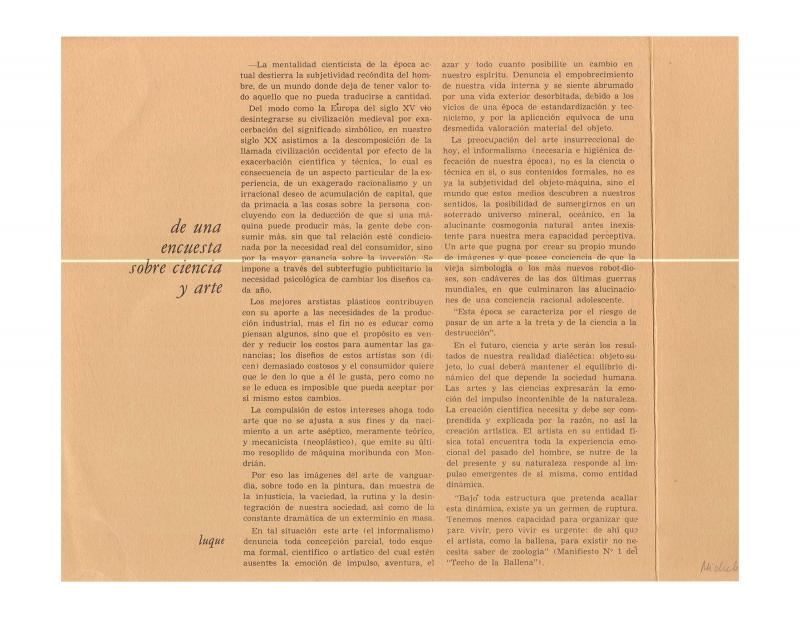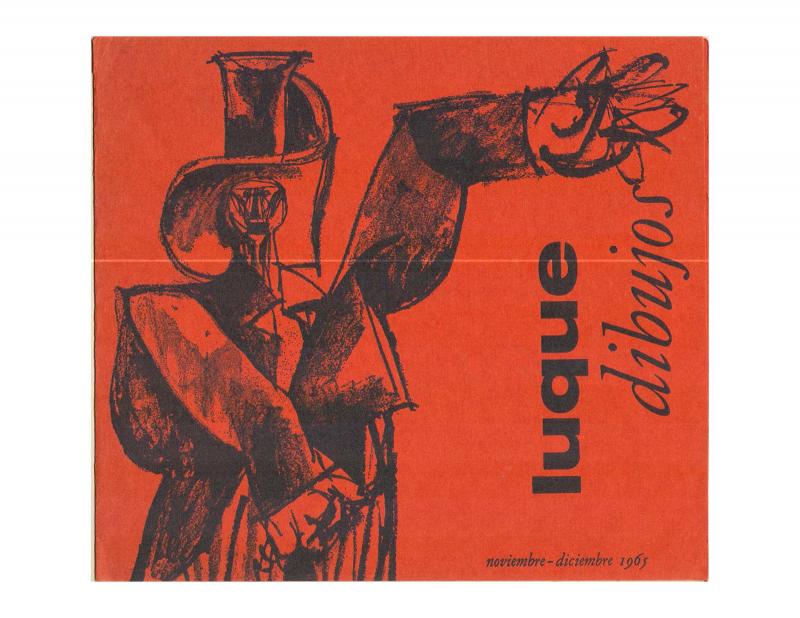Angel Luque (b. 1927), a Spaniard who lived in Venezuela for a around a decade (1955–67), wrote this text [in 1964] as a manifesto in which he announced to the world what he was proposing and seeking with his pictorial artwork. Luque ignores the criticism related to the aesthetic distance of his work; in general, he consciously seeks out the “rejection” of the critics and the public. He expresses himself frankly and directly, announcing to the world his intention to create work that is difficult to accept, and this is not exquisite or refined. His painting is violent without being irrational; this “violence” also characterizes most of his texts, which reflect his considered attitude toward society. Here, Luque indirectly criticizes artists who consider themselves Informalist, yet whose sole contribution to this trend is the use of slightly unconventional objects and materials. How can they identify with that trend, when their works still show the prevalence of formal concepts of organization, spatial composition, and color? When all is said and done, Luque is open to the evolution of his work, in which he is always open to freedom and risk.
This is a basic text for understanding the mentality of an artist such as Luque, reluctant as he is to be part of the world of contemporary art. It is also useful for understanding the explorations of the Informalism movement.
There is another text by Luque that complements this perspective, a criticism of both the exaggerated rationalism that prevails in the twentieth century and the capitalist system itself in “De una encuesta sobre ciencia y arte,” ICAA digital archive doc. no. 1168024. Luque also provides focus on his personality in an untitled essay included in his catalogue, Luque: Dibujos, [for an exhibition] held at the Museo de Bellas Artes in Caracas in 1965 [see ICAA digital archive doc. no. 1156779].


